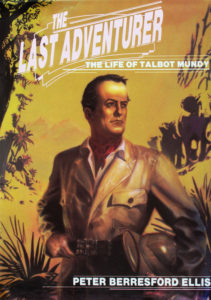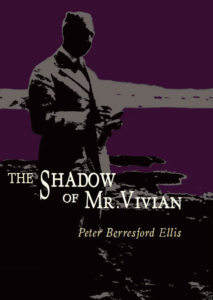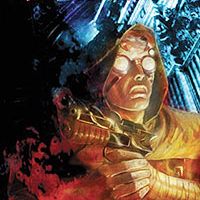 One aspect of this blog is to not just give a review of works, but to help readers better appreciate the pulps and their authors and editors. Thus I try to give information on these authors.
One aspect of this blog is to not just give a review of works, but to help readers better appreciate the pulps and their authors and editors. Thus I try to give information on these authors.
I have a trio of pulp-related author biographies from British author Peter Berresford Ellis. These are bios of H. Rider Haggard, Talbot Mundy, and E. Charles Vivian.
First up is Haggard via Ellis’s H. Rider Haggard: A Voice From the Infinite (1978). While not a pulp author, Haggard influenced many pulp authors, and many of his works were reprinted in the pulps. Some consider him the creator of the lost-world/lost-race genre, as King Solomon’s Mine is thought to be the first.
And if you don’t know Haggard because of Allan Quatermain, then it is Ayesha, or She, you may know him by.
Haggard moved to South Africa when 19, and spent several years there before returning to England. Certainly that time in Africa had an impact on him.
When he returned to England, he started on a career in the law, writing as a sideline. He wrote other works, but it wasn’t until King Solomon’s Mine in 1885 that he really started succeeding as an author. She would soon follow. And it went from there. This bio really helps in understanding his early life and how it give him life experiences that helped in his writing. It would also dispel some false ideas that some may have about him.
Next is The Last Adventurer: The Life of Talbot Mundy (1984). Published by Donald M. Grant, who also put out Talbot Mundy: Messenger of Destiny the prior year. Ellis contributed the bio of Talbot Mundy (1879-1940) to that work. And Ellis was the one who figured out that Mundy was born William Lancaster Gribbon.
His bio in Messenger was my first understanding of who Talbot was, and Last Adventurer expands on it. If you want to learn more about Mundy, both works are an excellent addition to your library and both are fairly easy to find.
From these, one learns of his life of adventure and, well, infamy, in East Africa and India before moving to America. He later spent time in Jerusalem. All of this helped him when he started writing fiction for the pulps, which launched his new career as an author of works such as King of the Kyber Rifles, the adventures of Jimgrim, and more. Mundy is such an interesting character that learning more about his life gives you a better appreciation of his work.
 Finally, we have The Shadow of Mr. Vivian: The Life of E. Charles Vivian (2014), on British author E. Charles Vivian (1882-1947), who was born Charles Henry Cannell. After reading and enjoying his Gees series and one of his lost-world novels and wanting to read the rest, I was curious about this author. I wanted to learn more about his influences. And while I learned more about him, it was also frustrating, though that’s not Ellis’ fault. Vivian had taken on that name when he joined the military, and it’s not clear if he legally changed his name, though his daughter has that as her name.
Finally, we have The Shadow of Mr. Vivian: The Life of E. Charles Vivian (2014), on British author E. Charles Vivian (1882-1947), who was born Charles Henry Cannell. After reading and enjoying his Gees series and one of his lost-world novels and wanting to read the rest, I was curious about this author. I wanted to learn more about his influences. And while I learned more about him, it was also frustrating, though that’s not Ellis’ fault. Vivian had taken on that name when he joined the military, and it’s not clear if he legally changed his name, though his daughter has that as her name.
I didn’t realize that he had become an editor of several British pulp magazines, filling the pages with his own works under a variety of pseudonyms. This makes it hard to figure out what he wrote as he kept no records, plus much was destroyed in the London Blitz. He was apparently fairly popular during his time, but writing under several names and in different genres didn’t help his overall fame. And he wasn’t forthcoming about his life and background even to his own daughter, who didn’t know much about him.
I do wish that someone would take on bringing back to print his lost-world stories. Ramble House has done a great job of bringing back the Gees novels, but what about his other fantastical works?
Hopefully if these authors interest you, you will seek out these works. And there are other bios out there for pulp and pulp-related authors. Check them out.



